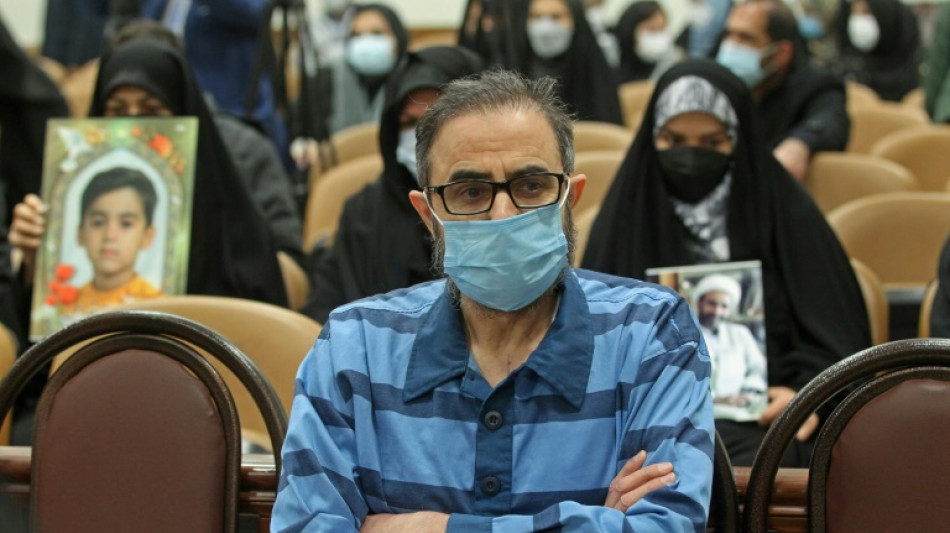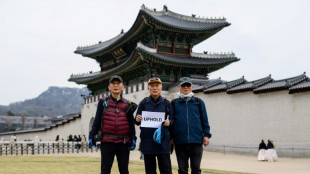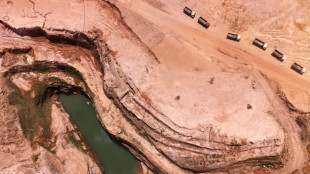

Iranian-Swedish dissident tried in Tehran for 'terrorism'
The trial of Iranian-Swedish dissident Habib Chaab started in Tehran on Tuesday, state television showed, with charges including terrorism and "spreading corruption on earth" punishable by the death sentence.
Chaab, in his late forties, has been held in Iran since late 2020 after he disappeared during a visit to Turkey.
He has previously appeared in a video, broadcast by Iranian state television, in which he claimed responsibility for launching an attack and working with Saudi intelligence services.
"He is accused of spreading corruption on earth through the formation, management and leadership of a group called the Arab Struggle Movement for the Liberation of Ahvaz, and planning and carrying out terrorist operations and destroying public property," the prosecutor's representative said.
State television showed recorded footage of the session that ran for almost an hour, a rare occurrence in Iranian courts.
Tehran designates the Arab Struggle Movement for the Liberation of Ahvaz (ASMLA) a terrorist group, and blames it for a string of attacks in the southwestern Khuzestan province.
The group carried out "bombings at government and public centres, espionage, armed attacks and acts against national security", leading to the death and injury of 74 Iranians, the prosecutor's representative added.
Dressed in blue striped prisoner's pyjamas, the bearded Chaab wore a mask as a coronavirus precaution. He listened for almost an hour to the accusations made by the prosecution.
Behind him sat men and women carrying pictures of relatives who lost their lives in attacks he's accused of, the presiding judge said.
- Sweden denied consular access -
The accusations against Chaab are based on "the Ministry of Intelligence investigation, the accused's confessions, and the available evidence," the prosecutor's representative said. Chaab has a lawyer and is physically and mentally healthy, he added.
Chaab was a dissident living in exile in Sweden and was granted Swedish nationality, but Iran does not recognise dual nationality for its nationals.
"We are in contact with representatives of Iran. We have requested, but have not been granted by Iran, consular access," Sweden's foreign ministry said in a statement on Tuesday.
"Iran's stated position is that they view Habib Chaab as only an Iranian citizen and therefore view the case as an Iranian internal matter. We do not share the view stated by Iran," the statement added.
The prosecution charged that, in addition to the accused, other leaders of the group are based in Europe including in Denmark, The Netherlands and Sweden, with the financial and logistical support of Saudi Arabia.
The group's main objective was "the disintegration of the Iranian province of Khuzestan", the prosecution said.
Oil-rich Khuzestan has a large Arab minority which has complained of being marginalised by the authorities.
Videos shown in court purportedly showed some of the movement's activities including masked armed men training, and an alleged member setting fire to a bank.
The trial continues, with the date of the next hearing yet to be set, the judge said.
Chaab disappeared during a visit to Turkey in October 2020 and a month later appeared on Iran's state television. He claimed responsibility for an attack in September 2018 on a military parade in the city of Ahvaz that killed at least 29 people.
Such videos are common in Iran, and are frequently condemned by rights groups, arguing that they are often obtained under duress.
In December 2020, Turkish authorities announced the arrest of 11 people suspected of spying and involvement in his alleged kidnapping on behalf of Iran.
T.Bastin--JdB



